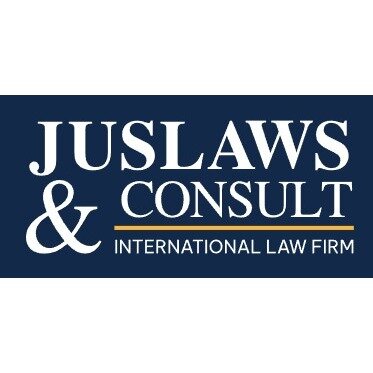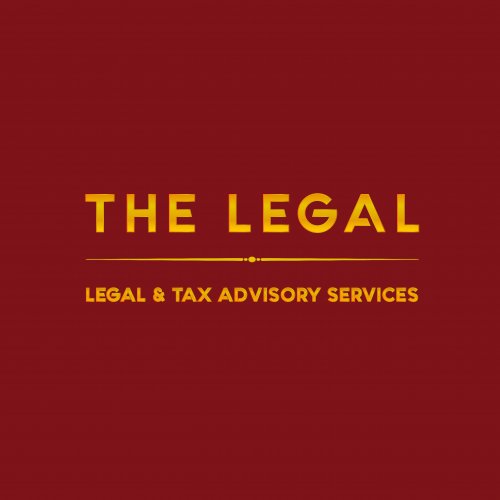Best Auto Dealer Fraud Lawyers in Thailand
Share your needs with us, get contacted by law firms.
Free. Takes 2 min.
Or refine your search by selecting a city:
List of the best lawyers in Thailand
Legal guides written by Smart Legal Solutions:
- Main Legal Measures to Protect Foreign Investment in Thailand
- The importance of the geographical indications for the Thai economy
Legal guides written by Mahanakorn Partners Group Co., Ltd:
- Thailand Strengthens Anti-Money Laundering Laws with New Amendments
- Recent Updates to Thailand’s Long-Term Resident (LTR) Visa and SMART Visa Programs
- Managing Risks in Public-Private Partnership Projects
About Auto Dealer Fraud Law in Thailand
Auto dealer fraud in Thailand involves deceptive practices by car dealers during the sale or financing of vehicles. These activities may include misrepresentation of a vehicle's history, non-disclosure of damages, or manipulation of terms in financing agreements. This type of fraud infringes on consumer rights and can lead to significant financial losses for buyers. The Thai government enforces laws to protect consumers, yet navigating these regulations can sometimes be challenging for individuals who fall victim to such fraud.
Why You May Need a Lawyer
Consulting a lawyer might become necessary in various situations related to auto dealer fraud. If you have purchased a vehicle and later discover undisclosed damage, an inaccurate odometer reading, or hidden terms in your purchase agreement, a lawyer can help you seek rectification. Additionally, if an auto dealer refuses to honor warranties or the terms of the sale contract, legal assistance can be crucial. Lastly, if your negotiations with a dealer to resolve a dispute are unsuccessful, a lawyer can represent your interests in court.
Local Laws Overview
Thailand has consumer protection laws designed to safeguard buyers in automotive transactions. The Consumer Protection Act, alongside several civil and commercial codes, addresses issues of fraud and deceptive practices. Sellers must provide accurate information about the vehicle and adhere to fair business practices. Breach of these obligations can result in legal consequences, including voided contracts and financial compensation for the consumer. Additionally, the Office of the Consumer Protection Board (OCPB) plays a critical role in addressing complaints and administering penalties against fraudulent dealers.
Frequently Asked Questions
What constitutes auto dealer fraud in Thailand?
Auto dealer fraud may include misrepresenting the condition, history, or price of a vehicle, as well as hiding relevant information that affects the purchase decision, such as previous accidents or incorrect mileage.
How can I verify the authenticity of a vehicle's records?
Checking the vehicle's history through a trusted service and verifying the documentation provided by the dealer is crucial. This can include previous ownership records, accident history, and maintenance logs.
What should I do if I suspect I've been a victim of auto dealer fraud?
Gather all relevant documentation, such as sales contracts and communication with the dealer, and consult with a legal professional to explore your options for recourse.
Can I return a car if it's not as described?
Under certain circumstances, if a car is not as described and the discrepancy significantly affects its value or functionality, you may have grounds to return the vehicle for a refund or replacement.
What are some red flags of auto dealer fraud?
Common red flags include pressure to make a quick decision, lack of transparent documentation, inconsistent vehicle history, and dealers avoiding direct answers to your questions.
How can a lawyer help in cases of auto dealer fraud?
A lawyer can assist in negotiating settlements, representing your interests in legal proceedings, and helping recover damages or void fraudulent contracts.
Is there a deadline for filing a complaint about auto dealer fraud?
Legal time limits for filing complaints can vary. It’s important to seek legal advice promptly to ensure your rights are preserved.
Can I sue a dealer for fraud in Thailand?
Yes, legal action can be initiated against a dealer who commits fraud, but it’s advisable to consult with a lawyer to assess the strength of your case and the potential outcomes.
Are there protections for financing and leasing agreements?
Yes, consumer protection laws also cover financing and leasing, requiring disclosure of terms and preventing unfair practices related to interest rates and fees.
What role does the Office of the Consumer Protection Board play?
The OCPB handles complaints regarding consumer rights violations and has the authority to mediate disputes, provide sanctions against malpractice, and enact consumer protection policies.
Additional Resources
Individuals seeking assistance with auto dealer fraud can benefit from contacting the following resources:
- Office of the Consumer Protection Board - for filing complaints and receiving guidance.
- Thai Bar Association - for finding legal representation.
- Consumer Protection Police Division - for legal enforcement related inquiries.
Next Steps
If you suspect auto dealer fraud, begin by compiling all relevant information about your purchase. Reach out to a legal professional experienced in consumer rights to assess your case and determine an appropriate course of action. Additionally, consider filing a complaint with the OCPB to initiate an investigation. Always ensure to protect your rights by understanding the terms of any auto purchase agreements thoroughly before finalizing a deal.
Lawzana helps you find the best lawyers and law firms in Thailand through a curated and pre-screened list of qualified legal professionals. Our platform offers rankings and detailed profiles of attorneys and law firms, allowing you to compare based on practice areas, including Auto Dealer Fraud, experience, and client feedback.
Each profile includes a description of the firm's areas of practice, client reviews, team members and partners, year of establishment, spoken languages, office locations, contact information, social media presence, and any published articles or resources. Most firms on our platform speak English and are experienced in both local and international legal matters.
Get a quote from top-rated law firms in Thailand — quickly, securely, and without unnecessary hassle.
Disclaimer:
The information provided on this page is for general informational purposes only and does not constitute legal advice. While we strive to ensure the accuracy and relevance of the content, legal information may change over time, and interpretations of the law can vary. You should always consult with a qualified legal professional for advice specific to your situation.
We disclaim all liability for actions taken or not taken based on the content of this page. If you believe any information is incorrect or outdated, please contact us, and we will review and update it where appropriate.
Browse auto dealer fraud law firms by city in Thailand
Refine your search by selecting a city.

















